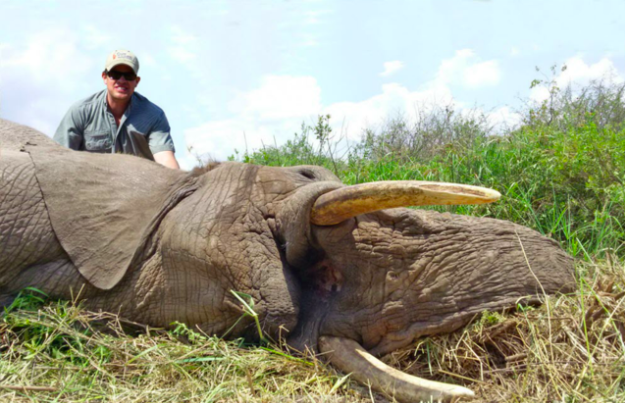
By Alexandra Patel and Monica Medina
After a 5-year ban, the government announced recently that elephant hunting is again legal in the southern African nation of Botswana. The former President Ian Khama originally implemented the hunting ban, but it came under scrutiny by Khama’s successor, President Mokgweetsi E.K. Masisi, with the Environment Ministry citing conflicts with humans and an inability to manage increasing elephant populations as the rationale.
Why This Matters: Lifting the ban has far-reaching consequences for the survival of elephants in Africa. Since 1979, African elephants have been listed as threatened under the Endangered Species Act. The population has shrunk from around 5 million a century ago to about 400,000, a drop precipitated by poaching and the demand for elephant ivory and by the loss of habitat. The Trump Administration allows the importation of elephant and other trophies, so this will give U.S. hunters another place to legally hunt elephants, expanding big game hunting tourism, which will be hard for the Botswana government to reverse again. It will also increase the amount of legal ivory in the international market, making cracking down on elephant poaching and illegal ivory sales that much tougher. Given the recent U.N. Extinction Report that calls on governments to act now to conserve biodiversity, this seems like a step in the wrong direction. If only there were U.S. government assistance to help the Botswana government deal with the legitimate issue of elephant-human conflicts.
Environmental and Animal Welfare Organizations Are Angry.
- The New York Times reported that the Humane Society International, an animal welfare group based in Washington, warned in March that “reinstating trophy hunting and starting elephant culls could hurt the country’s economy.”
- Celebrities such as talk-show host Ellen DeGeneres and the actress Kristin Davis had increased the pressure on the government — both called for a boycott of tourism to Botswana unless the hunting ban was maintained.
- Former President Khama said in an interview with CNN, “Resorting to killing is a blood policy that should not be supported. This will not have an impact on human-animal incidents. It is a political move.”
- According to CNN, the group Elephants Without Borders claims that there has been a 500% increase in fresh carcasses spotted in Botswana and that many of them have been poached.
The Government Says Elephant Population Increases Are Unsustainable.
- The Environment Ministry cited a rapid rise in elephant related incidents and conflict with humans as direct consequences of the ban because elephant populations are growing.
- Botswana has some 27,000 elephants living outside wildlife management areas that often come into conflict with farmers.
- Rural farmers faced the worst of the ban, as roaming elephants would often destroy crops, raid fields and even cause physical injury or death to those in their way.
- The Department of Wildlife and National Parks was unequipped to deal with this increase in incidents and unable to provide the necessary animal control support.
- The Government also argues that limited trophy hunting would generate more revenue for conservation efforts.
The end to the elephant prohibition comes at a contentious time though, as the 2019 elections loom closer and President Masisi needs votes – particularly those of the rural sector — to win re-election.
June 3, 2019 » #CampaignforNature, Botswana, elephants, illegal ivory, ivory, poaching, tourism, wildlife trafficking


